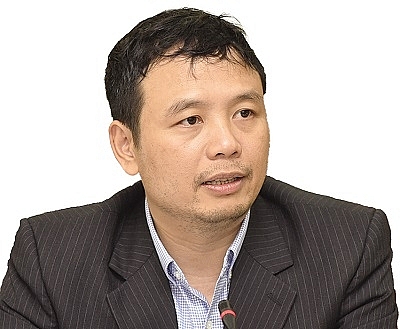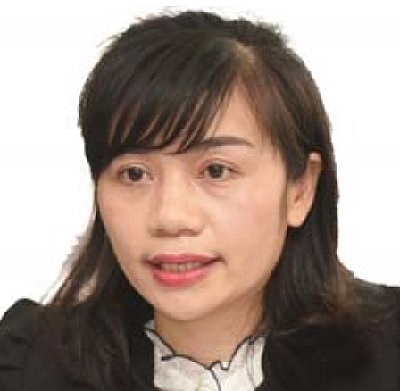Transparent consumer credit firms can succeed
 |
| Last week’s consumer finance seminar in Hanoi saw experts express their views on providing legal credit to customers, and protecting consumers from illegal moneylenders |
At last Friday’s seminar on consumer finance held by VIR in Hanoi, experts put forward their views on the burgeoning sector. True to the theme “Developing consumer finance as a solution to ward off shadow banking”, most of the discussions focused on how institutions can provide legal credit to consumers, protecting them from aggressive loan sharks.
According to Trinh Ba Viet Xo, head of the Strategic Customer Department at Home Credit, loan sharks are ubiquitous in Vietnam. They are everywhere from the biggest cities to the most remote areas, offering quick unsecured loans via advertisements or word-of-mouth. They have been around for too long, wrecking the lives of borrowers via violence or even worse.
Of course, Vietnamese laws have been tightened to eliminate loan sharks, but the key to this long-standing problem is an alternative, and legal, route to consumer loans, said Xo. The reasoning is simple: consumers will always have a need for loans, and if they are provided with legal options via consumer credit firms, loan sharks will naturally die out – without the need for a costly clampdown.
Consumer credit firms also make it easier for the unbanked consumers, who take up 70 per cent of Vietnam’s adult population, to access financial services. Experts at the seminar said that this is very important for Vietnam to promote financial inclusion, making finance available to the poor and underprivileged.
Meanwhile, Tran Minh Hai, lawyer at BASICO Law Firm, said that there should be a clear differentiation between loan sharks and legitimate consumer finance firms. In recent years, some consumer credit firms in Vietnam have been branded as “just another loan shark” due to their similar sky-high interest rates. This is a belief that Hai thinks is “missing the point.”
Moral responsibility
According to Hai, the problem can be partly attributable to the law’s wording. Vietnam’s laws state that any lender that charges over 100 per cent of annual interest rates are deemed loan sharks, while in reality, in some cases, consumer credit firms might charge high interest rates due to the risky nature of the loan.
“The most important difference here is not the interest rates themselves, but the way customers are treated. If consumers borrow via loan sharks, they are subject to fraud, violence, and harassment by criminals, while the activities of consumer credit firms must follow the strict rules of the State Bank of Vietnam and customers are always protected by law,” Hai explained.
Hai added that to set themselves apart from loan sharks, consumer finance firms should be transparent about their processes, from interest rates to repayment. On the other hand, Vietnam should also educate the public on basic personal finance terms, helping borrowers realise their rights and responsibilities.
This is vital to ensure smooth transactions for both consumer finance firms and borrowers, especially as consumer credit is the fastest growing loan segment in Vietnam. In 2018, consumer loans take up 19.4 per cent of outstanding debts in the country, an equivalent to VND1.4 trillion ($61 billion).
Foreign capital influx
It is notable that as more Vietnamese consumers dump loan sharks for legal lenders, foreign investors are jumping in. The most popular route is to merge with or acquire an existing Vietnam-based firm – as in the cases of Shinhan Card and Prudential Finance, Lotte Card and Techcom Finance or Shinsei Bank and MB Credit. Most recently, Japan’s retail giant Aeon has also expressed interest in taking over a consumer credit firm in Vietnam.
Michael DC Choi, deputy general director of the Korea M&A Centre under the Korea Trade-Investment Promotion Agency, said that South Korean investors want to tap into Vietnam’s growing financial sector, from banking to consumer finance and fintech, as shown through recent merger and acquisition (M&A) deals involving a South Korean buyer.
The opportunity is so great that even struggling businesses are also sought after by overseas investors. A prominent example is Thailand’s Srisawad is offering to buy the loss-making consumer credit arm of Agribank.
Economist Can Van Luc believed that M&A is an attractive option for foreign investors who want to avoid the troublesome route of setting up a brand-new entity in Vietnam. Moreover, according to Luc, overseas investors tend to have enough financial capacity to buy out a domestic firm, and they can benefit from the existing facilities and local know-how of the seller.
Luc added that both foreign and domestic consumer credit firms face the challenge of differentiating themselves from black credit, as well as educating the public on personal finance and money management. Transparency is very important, and staff members at these companies should be well-trained on customer service and risk management.
| Nguyen Tu Anh - Deputy director Monetary Policy Department State Bank of Vietnam
Consumer finance is becoming an important part of the Vietnamese economy, which means risks are growing too. We need a better system to forecast and manage these risks, avoiding a bubble that can burst and wreak havoc on the stability of our financial sector. Ethics is another important aspect, as competition among consumer credit companies is growing and firms can resort to unethical methods to compete. Moreover, our legal system sometimes lags behind the break-neck growth of new financial products, making it risky for consumers to join in these new offers. We should also remember that black credit can never be wiped off, but they will weaken significantly if we assist the growth of official lending channels. Nguyen Thanh Phuc - Deputy CEO, FE Credit
Unfortunately, many borrowers think that legal consumer credit firms are no different from loan sharks and that the interest rates are similar. Another complaint is that our interest rates are higher than commercial banks. We would like to clarify that “low or high” interest rates depend on the nature of each debt. We offer unsecured lending, which is riskier than collaterised loans. We also have to charge high rates because we cannot accept deposits like banks do. We have to raise money from other sources that are more expensive. Moreover, managing a large amount of small loans is very costly. That said, I still have strong faith that Vietnam’s consumer finance industry will put a stop to shadow banking and loan sharks. Tran Kim Anh - Deputy director, General Economy Department, Central Economic Commission
To boost the growth of consumer finance, the borrowing process should be simplified and made more transparent, and consumer credit firms should also be present in remote areas where locals do not have access to banking services. The efforts should go both ways – we must educate borrowers on their repayment responsibilities. The reality is that some debtors in Vietnam do not fully understand the risks related to unsecured lending, which pushes them towards late payment or defaults. |
What the stars mean:
★ Poor ★ ★ Promising ★★★ Good ★★★★ Very good ★★★★★ Exceptional
Related Contents
Latest News
More News
- Private capital funds as cornerstone of IFC plans (February 20, 2026 | 14:38)
- Priorities for building credibility and momentum within Vietnamese IFCs (February 20, 2026 | 14:29)
- How Hong Kong can bridge critical financial centre gaps (February 20, 2026 | 14:22)
- All global experiences useful for Vietnam’s international financial hub (February 20, 2026 | 14:16)
- Raised ties reaffirm strategic trust (February 20, 2026 | 14:06)
- Sustained growth can translate into income gains (February 19, 2026 | 18:55)
- The vision to maintain a stable monetary policy (February 19, 2026 | 08:50)
- Banking sector faces data governance hurdles in AI transition (February 19, 2026 | 08:00)
- AI leading to shift in banking roles (February 18, 2026 | 19:54)
- Digital banking enters season of transformation (February 16, 2026 | 09:00)




 Tag:
Tag:




















 Mobile Version
Mobile Version